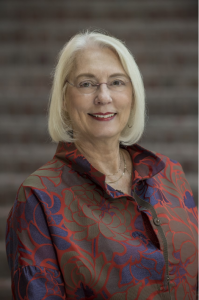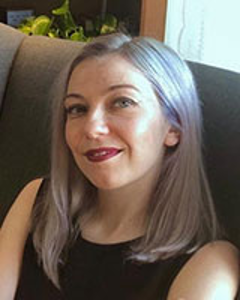Affiliated Faculty
Several faculty members within The Fletcher School and Tufts University maintain affiliation with The Fares Center through their work on issues and topics that align with the Center’s mission. Ranging from conflict negotiation to ethnomusicology, their diverse backgrounds and interests highlight the interdisciplinary modalities within The Fares Center.
Fletcher School Affiliated Faculty
Eileen Babbitt
Professor of International Conflict Management Practice at the Fletcher School
Eileen.Babbitt@tufts.edu
Eileen F. Babbitt, PhD, is Professor of International Conflict Management Practice at the Fletcher School of Law and Diplomacy at Tufts University. Recent publications include: “The Responsibility to Protect: Time to Re-Assess.” Journal of Human Rights Practice. (2017); “The Pragmatics of Peace with Justice: The Challenge of Integrating Mediation and Human Rights.” in Coleman, Deutsch, and Marcus. The Handbook of Conflict Resolution: Theory and Practice, Third Edition (2014); “Mediation and the prevention of mass atrocities.” in Serrano and Weiss (eds.) The International Politics of Human Rights: Rallying to the R2P Cause?(2014); and “Preventive Diplomacy by Intergovernmental Organizations: Learning from Practice.” International Negotiation (2012).
Her 30+ years of practice as a facilitator, trainer, and mediation specialist has included work in the Middle East, the Balkans, and with the United Nations (UNDP, UNHCR, UNAMI), U.S. government agencies (USAID, US Department of State), regional inter-governmental organizations (African Union, OSCE), and international and local NGOs.
Dr. Babbitt holds a Master’s Degree in Public Policy from the Harvard Kennedy School, and a Ph.D. from the MIT.
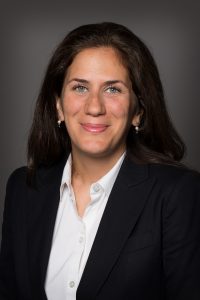 Christine Bustany
Christine Bustany
Senior Lecturer at The Fletcher School
Christine.Bustany@tufts.edu
Christine Bustany is a senior lecturer in international law at The Fletcher School at Tufts University, where she directs a newly established international law practicum and teaches law related courses. Bustany’s primary areas of legal expertise include: international law, human rights, and civil litigation. She has experience as an advocate and researcher in the nongovernmental and intergovernmental organizations sector, working on international human rights and development issues, as well as a practicing attorney engaging in complex commercial litigation at the international law firm of O’Melveny and Meyers in New York. Bustany has served as a pro bono lawyer in a range of civil and political rights matters in US courts and international fora, including successfully representing petitioners before the United Nations Human Rights Committee.
Bustany received a Bachelor of Arts degree in international relations from Brown University, and a Juris Doctorate from Fordham University School of Law. In addition, she studied political science and economics at the Institut D’Etudes Politiques de Paris (Sciences Po) in Paris, France, and was a Fulbright fellow in Cairo, Egypt.
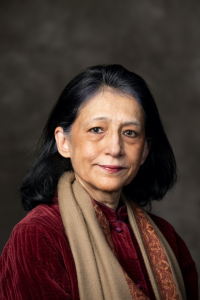 Ayesha Jalal
Ayesha Jalal
Mary Richardson Professor of History at Tufts University
Ayesha.Jalal@tufts.edu
Ayesha Jalal is the Mary Richardson Professor of History at Tufts University where she teaches at both the History Department and the Fletcher School of Law and Diplomacy. She obtained her BA, majoring in History and Political Science, from Wellesley College, USA, and her doctorate in history from the University of Cambridge. She has taught at the University of Wisconsin-Madison, Tufts University, Columbia University and Harvard University. Her publications include The Sole Spokesman: Jinnah, the Muslim League and the Demand for Pakistan (Cambridge, 1985 and 1994); The State of Martial Rule: the Origins of Pakistan’s Political Economy of Defence (Cambridge, 1990) and Democracy and Authoritarianism in South Asia: a Comparative and Historical Perspective (Cambridge, 1995). Dr Jalal has co-authored Modern South Asia: History, Culture and Political Economy (Routledge, 1998) with Sugata Bose which has been published by Oxford University Press in India and by Sang-e-Meel in Pakistan. Her study of Muslim identity in the subcontinent, entitled Self and Sovereignty: the Muslim Individual and the Community of Islam in South Asia since c.1850 appeared in 2000-2001 (London/New York: Routledge, Delhi: Oxford University Press and Lahore: Sang-e-Meel). She has also authored Partisans of Allah: Jihad in South Asia (Cambridge, M.A: Harvard University Press; Lahore: Sang-e-Meel, 2008). Dr. Jalal’s most recent book is The Struggle for Pakistan: A Muslim Homeland and Global Politics (Cambridge, M.A: Harvard University Press, 2014).
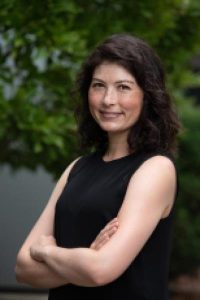 Elisabeth Leake
Elisabeth Leake
Lee E. Dirks Professorship in Diplomatic History, Associate Professor of History, and Associate Professor, History, Arts and Sciences
elisabeth.leake@tufts.edu
Elisabeth Mariko Leake is an award-winning historian and the Lee E. Dirks Professor inDiplomatic History at the Fletcher School of Law and Diplomacy, which she joined in 2022. She studied global history at Yale University and the University of Cambridge, where she completed her PhD in 2013. She held a three-year Leverhulme Early Career Fellowship at Royal Holloway, University of London, before taking up a permanent position at the University of Leeds in 2016.
Prof. Leake’s research to date has been broadly focused on the global histories of decolonization and the Cold War. Her first book, “The Defiant Border: The Afghan-Pakistan Borderlands in theEra of Decolonization, 1936–65” (Cambridge University Press, 2017), rethinks the political development of Pakistan’s Federally Administered Tribal Areas. She asks why this region has remained largely autonomous to this day, despite Pakistani and Afghan state-building activities and interference from British and later American policymakers. This book distinctively reintegrates South Asia’s border zones into twentieth-century global histories, placing the subcontinent and its peripheries in a wider international and trans-Asian context. Dr. Leake reflects on the impacts of decolonization and US Cold War policies on local political and social developments in the Afghan-Pakistan borderlands, as well as local populations’ reactions to shifts in national, regional, and global dynamics. Using the frontier’s Pashtuns as a case study, she demonstrates the crucial role that peripheral, potentially “anti-state” actors can play in influencing social, political, economic, and strategic relationships at all levels of governance.
Her second book, “Afghan Crucible: The Soviet Invasion and the Making of ModernAfghanistan,” was published by Oxford University Press in 2022 and won the Society forHistorians of American Foreign Relations’ Robert H. Ferrell Prize in 2023. This is a new global history of the Soviet invasion of Afghanistan, 1979–89, interweaving local, regional, and international histories of the civil war of the 1980s. Through an innovative methodology that brings together the perspective of many of the different actors involved in the Afghan civil war -the People’s Democratic Party of the Afghanistan, Afghan resistance groups, and refugees; state actors from the Soviet Union, United States, Pakistan, India, Iran, and China; representatives from the United Nations and UNHCR – she explores how the Afghan civil war posed a litmus test not just for Afghanistan but also for anti-colonialism, the postcolonial nation-state, and the international system.
Prof. Leake is currently working on a global history of decolonization and developing a research network examining the comparative and interconnected histories of oppositional politics and modes of dissent in the years immediately following political independence in decolonizing states. She is the chief editor of the Journal of Global History and will deliver the Stuart L. Bernath Prize Lecture at the SHAFR annual conference in 2025. For more information, please visit www.elisabethmarikoleake.com.
 Chidi Odinkalu
Chidi Odinkalu
Professor of Practice in International Human Rights Law
chidi.odinkalu@tufts.edu
Chidi Anselm Odinkalu is Professor of Practice in International Human Rights Law at the Fletcher School and currently chairs the Truth, Justice, and Peace Commission, a transitional justice initiative established to address the crises of violence and agitation in the states of south-east Nigeria. He previously chaired Nigeria’s National Human Rights Commission and served on the panel of eminent persons that negotiated the return of The Gambia to the Commonwealth in 2017.
Odinkalu has acted as counsel in international human rights litigation before Africa’s regional human rights courts and tribunals and was involved in the creation of the African Court on Human and Peoples’ Rights. He is associated with several advocacy initiatives for the protection of human rights, including the International Refugee Rights Initiative.
His research focuses on contemporary challenges of multilateralism in regional systems in development, human rights and governance. He is the co-author of Too Good to Die: Third Term and the Myth of the Indispensable Man in Africa (Kachifo, 2018).
Tufts University Affiliated Faculty
Alexandra Chreiteh (Shraytekh)
Mellon Bridge Assistant Professor of Arabic Studies at Tufts University
Alexandra.Shraytekh@tufts.edu
Alexandra Chreiteh (Shraytekh) is Mellon-Bridge Assistant Professor of Arabic and International Literary and Visual Studies. She holds a Ph.D. in Comparative Literature from Yale University. Her work is at the intersection of transnational literature, literary history and theory, visual studies, race and ethnicity studies, women and gender studies, environmental studies, queer studies, and disability studies. Dr. Chreiteh’s current book project, tentatively titled Other Realisms: A Theory of the Arabic Fantastic, examines a seismic shift in Arabic political aesthetics that, through activating the realm of the supernatural, renders visible those who remained in the shadows of the Arab postcolonial project—ethnic, religious, gender, and sexual minorities, as well as people with disabilities, migrant workers, and refugees. Her second book project, tentatively titled Arab Horror, narrates the resurgence of horror narratives in Arabic literature and film. Dr. Chreiteh has taught courses on Arab Spring and popular culture; the fantastic; border crossings in literature and film; Mizrahi literature and film; and literary and filmic monstrosity. In addition to her academic work, she is the author of two novels in Arabic, Always Coca-Cola and Ali and his Russian Mother.
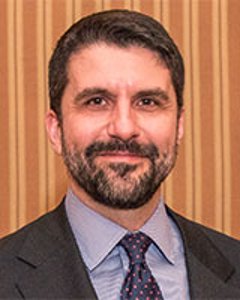 Ioannis Evrigenis
Ioannis Evrigenis
Professor of Political Science, Chair of the Department of Classical Studies, Co-founder of the Civic Studies major
Ioannis.Evrigenis@tufts.edu
Ioannis D. Evrigenis is Professor of Political Science and Director of the International Relations Program at Tufts University. He is the author of Images of Anarchy: The Rhetoric and Science in Hobbes’s State of Nature (Cambridge University Press, 2014), of articles on a wide range of issues in political theory, and co-editor of Johann Gottfried Herders Another Philosophy of History & Selected Political Writings (Hackett Publishing Company, 2004). He received the 2009 Delba Winthrop Award for Excellence in Political Science for his book Fear of Enemies and Collective Action (Cambridge University Press, 2008), as well as the 2016 RSA-TCP Article Prize for Digital Renaissance Research, from the Renaissance Society of America, for his article “Digital Tools and the History of Political Thought: The Case of Jean Bodin.” He has received grants and fellowships from Fulbright, Princeton University’s Center for Human Values, the National Endowment for the Humanities, the American Philosophical Society, the Alexander S. Onassis Public Benefit Foundation, the Harry Frank Guggenheim Foundation, and the Earhart Foundation, among others, as well as five Certificates of Distinction in Teaching from Harvard University’s Derek Bok Center for Teaching and Learning.
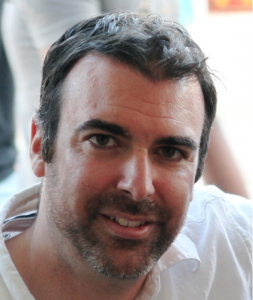 Richard Jankowsky
Richard Jankowsky
Associate Professor and Chair of the Department of Music at Tufts University
Rich.Jankowsky@tufts.edu
Richard Jankowsky, Ph.D., is Associate Professor and Chair of the Department of Music at Tufts University. Dr. Jankowsky received his BA in Anthropology and Music from Tufts University and his Ph.D. in Ethnomusicology from the University of Chicago. Prior to his appointment to the Department of Music at Tufts University in 2006, he was on the faculty of the School of Oriental and African Studies at the University of London, England.
Through fieldwork-based methods, Dr. Jankowsky’s research revolves around the intersection of music and power in North Africa, particularly music’s capacity to heal, to maintain and narrate histories of underrepresented populations, to articulate religious sentiment, and to serve as a flashpoint for debates over cultural, religious, and political identities. His book Stambeli: Music, Trance, and Alterity in Tunisia, received three honorable mention awards for book prizes from academic societies in the fields of anthropology, ethnomusicology, and North African Studies. He is the recipient of fellowships and grants from the National Endowment for the Humanities, the American Institute for Maghrib Studies, the Arts and Humanities Research Council, and Fulbright/IIE. Dr. Jankowsky’s most recent book is Ambient Sufism: Ritual Niches and the Social Work of Music Form (University of Chicago Press, 2021).
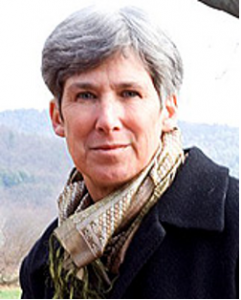 Beatrice Manz
Beatrice Manz
Professor of History at Tufts University
Beatrice.Manz@tufts.edu
Dr. Manz came to Tufts in 1985 after graduate study at the University of Michigan (MA, 1974) and Harvard University (Ph.D. 1983). As an undergraduate, she studied Russian history, then became interested in the Middle East when she spent seven months in Iran in 1968. A semester spent teaching world history in the Philippines after graduation brought her to wonder about the lives of the pastoral nomads, and these two interests have defined her career since then. Dr. Manz’s major period of research has been the Timurid dynasty (1370-1506), the subject of her dissertation and two books, The Rise and Rule of Tamerlane (Cambridge University Press, 1989) and Power Politics and Religion in Timurid Iran (Cambridge University Press, 2007). Other publications include two edited volumes, Central Asia in Historical Perspective (Westview Press, 1994), and Studies on Chinese and Islamic Central Asia, Collected articles of Joseph Fletcher (Variorum Reprints, 1995). Dr. Manz is currently finishing a book on the history of nomads in the Middle East from the rise of Islam to the present, expected out in summer, 2021.
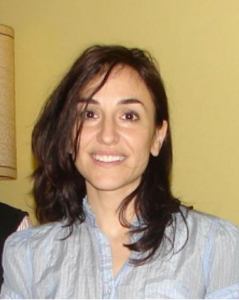 Christina Maranci
Christina Maranci
Professor, Arthur H. Dadian and Ara Oztemel Professor of Armenian Art and Architecture at Tufts University, Department Chair
Christina.Maranci@tufts.edu
Dr. Maranci is an Armenian-American researcher, writer, translator, historian, and professor at Tufts University. Her expertise is centered on the history and development of Armenian architecture, medieval Armenian history and the relationship with the Sasanian, Byzantine, and Islamic empires. She obtained her Bachelor of Arts degree in Art History at the Vassar College in 1990. She received her master’s and Ph.D. at Princeton University in the Art and Archeology department with her dissertation, Medieval Armenian Architecture in Historiography: Josef Strzygowski and his Legacy. She was an assistant professor at the University of Wisconsin–Milwaukee from 2001 to 2004, and an associate professor there through 2008. Dr. Maranci’s most recent books include Vigilant Powers: Three Churches of Early Medieval Armenia (2015) and The Art of Armenia: An Introduction (2018).
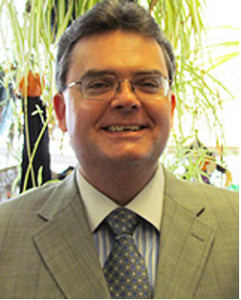 David Proctor
David Proctor
Senior Lecturer at Tufts University
David.Proctor@tufts.edu
Dr. Proctor is a triple jumbo, receiving his B.A., M.A., and Ph.D. from Tufts. He has taught at Tufts as a senior section instructor and lecturer since 1996 specializing in the history of Europe, Byzantium, Southeastern Europe and papal-imperial relations. Dr. Proctor is currently a Senior Lecturer in the Department of History and serves as adjunct Senior Lecturer in the Department of Classics and a member of the Core Faculty of the International Relations program, the Archaeology program, the Middle Eastern Studies program, and the Medieval Studies program.
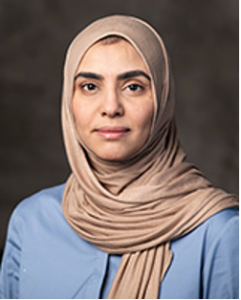 Souhad Zendah
Souhad Zendah
Co-Director of the Middle Eastern Studies Program and Senior Lecturer in International Literary and Cultural Studies at Tufts University
Souhad.Zendah@tufts.edu
Souhad Zendah is Co-Director of the Middle Eastern Studies Program at Tufts University and Senior Lecturer in the Department of International Literary and Cultural Studies. Professor Zendah received her Master of Education in Language and Literacy from Harvard University, and has previously taught as a lecturer in Arabic at Harvard University, Middlebury College, and the University of Maryland. She teaches all levels of Arabic, as well as courses in Arabic Literature and Arabic dialects. Professor Zendah’s primary interests include Arabic pedagogy and curriculum design, cognitive and educational consequences of bilingualism and Arabic modern literature.

